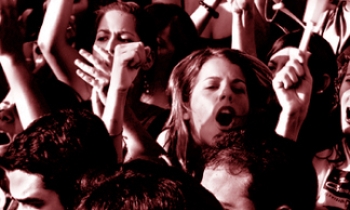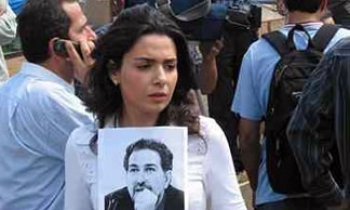Fourteen media organizations have made a commitment to provide equitable coverage of elections due later this year with the signing of a Code of Conduct at Le Meridien Pegasus last evening.
By virtue of placing their signatures on the document, the representatives of NCN, Guyana Press Association, HBTV-Channel 9, AFP, Stabroek News, New Nation, MTV, Catholic Standard, Kaieteur News, Guyana Chronicle, RCA-TV, Mirror, VCT-Channel 28 and CNS-Channel 6 have agreed that a code of conduct for the media would contribute to the holding of a free and fair election, ensuring the success of this democratic process.
They agreed, to the best of their ability, to comply with the code of conduct and to take all reasonable steps to ensure its observance.
They have also accepted that they are subscribing to the code on the clear and unqualified understanding that the government or any of its agencies and the Elections Commis-sion, would not impose or seek to impose any prior restraint or censorship on any publication by the media.
The gathering was addressed by Guyana Elections Commission (GECOM) Chairman Dr Steve Surujbally, Common-wealth Media Advisor to GECOM Tim Neale, and Sir Shridath Ramphal.
Witnesses to the ceremony included members of the diplomatic corps and donor agencies, and representatives of political parties and civil society.
The media code, an amended version of the 2001 media code of conduct, was approved by the management and staff of the country's main media houses at a workshop held at the Cara Lodge on December 7 last year. Representatives of political parties and civil society were also at that workshop.
In order to maintain a stable society and journalistic integrity, the code says, the media in their coverage and reporting of the elections during the period of campaigning will agree: "to refrain from the publishing or broadcasting of any matter with the potential for, or likelihood of, promoting or inciting racial hatred, bias or contempt or any matter with the potential for, or likelihood of, promoting or causing public disorder, posing or becoming a threat to the security of the nation."
Where normal democratic editorial principles demand the reporting of such events, the accuracy of the report must be confirmed by at least two independent sources. Extreme caution must be taken in the preparation of the report with the choice of pictures and words in order to avoid exacerbating the likelihood of incitement. Gratuitous publication of gruesome detail or inflammatory language for sensational purposes is unacceptable.
Additionally, the code states that media organizations may not censor, or edit any material or materials submitted by political parties or their agents, for either free, or paid for, publication in newspapers or for broadcast on radio or television stations.
However, media houses observing the law and exercising editorial judgment in favour of good taste and a respect for public safety and decency should refuse any material submitted by political parties or agents likely to be hateful, ethnically offensive, to promote public disorder or threaten the security of the state.
The media have agreed to hold themselves independent and free of any, or all, government and political opposition control and direction; as well as political parties officially registered to contest the elections. They have also agreed to hold themselves free of any, or all, control and direction from any individual, group, or organization representing or promoting the special interests of any of the political parties officially registered to contest the elections.
The code covers journalistic professionalism, fairness and balance, accuracy and thoroughness, full information, the sins of omission, management support for reporters, equitable share of election coverage by state and private media, opinion polls, dealing with complaints coverage on polling day, and the publication of results.
Where the monitoring of media performance is concerned the code says that in addition to self monitoring media organizations would welcome the establishment, as in 2001, of an Independent Refereeing Panel as a "point of reference" for the submission of complaints about coverage and performance during the elections campaign.









